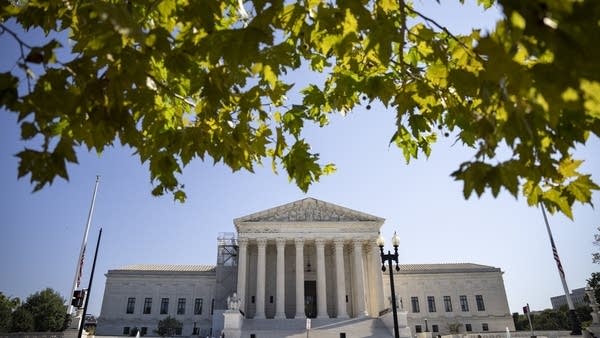Supreme Court session opens with a challenge to federal regulators’ powers
The doctrine instructs courts to defer to federal agencies on details where the law is unclear, so long as that guidance is “reasonable.”

The Supreme Court started its new session Monday, and there are lots of major cases on the docket, including ones about guns, abortion and voting rights. One in particular could overturn decades of precedent — not abortion this time — something called the Chevron doctrine.
It’s a somewhat obscure legal concept, but could have a major impact on how the federal government interacts with the economy.
The case the court is taking up is technically about fishing: Loper Bright Enterprises v. Raimondo, as in Commerce Secretary Gina Raimondo.
“This is a case about when inspectors go onto fishing boats to monitor the catch, whether the owners of those boats can be required to pay for the costs of those monitors,” said Nicholas Bagley, a law professor at the University of Michigan.
Even though this case is about fishing, the central question the court is asking is whether to overturn or clarify the 1984 decision in Chevron U.S.A. v. National Resources Defense Council, which created what’s now known as the Chevron doctrine.
“Under the Chevron doctrine, the courts are going to give the agencies that benefit of the doubt when they go about interpreting the statutes that they administer,” Bagley said.
When the law is unclear on a specific detail, federal agencies usually issue a rule or guidance about it. The Chevron doctrine instructs courts to defer to the agencies, so long as that guidance is “reasonable.”
“Chevron doctrine, for better or worse, has been sort of identified by the conservatives that think the administrative state is out of control as being at least a symbolic, if not an actual, vehicle in which this sort of power transfer has taken place,” said Thomas Merrill, a professor at Columbia Law School who wrote a book on this.
Several cases seeking to challenge this policy have been working their way through the courts. The Loper Bright case about fishing regulations is where the court will take a look.
If Chevron is overturned, the consequences could be far reaching, said Leah Dempsey, a lawyer with the firm Brownstein Hyatt Farber Schreck.
“There will probably be a lot more legal challenges to agency actions, knowing that they don’t necessarily have the Chevron doctrine to fall back on,” she said.
And, Dempsey said, Congress would have to be more intentional in the way it writes laws.










